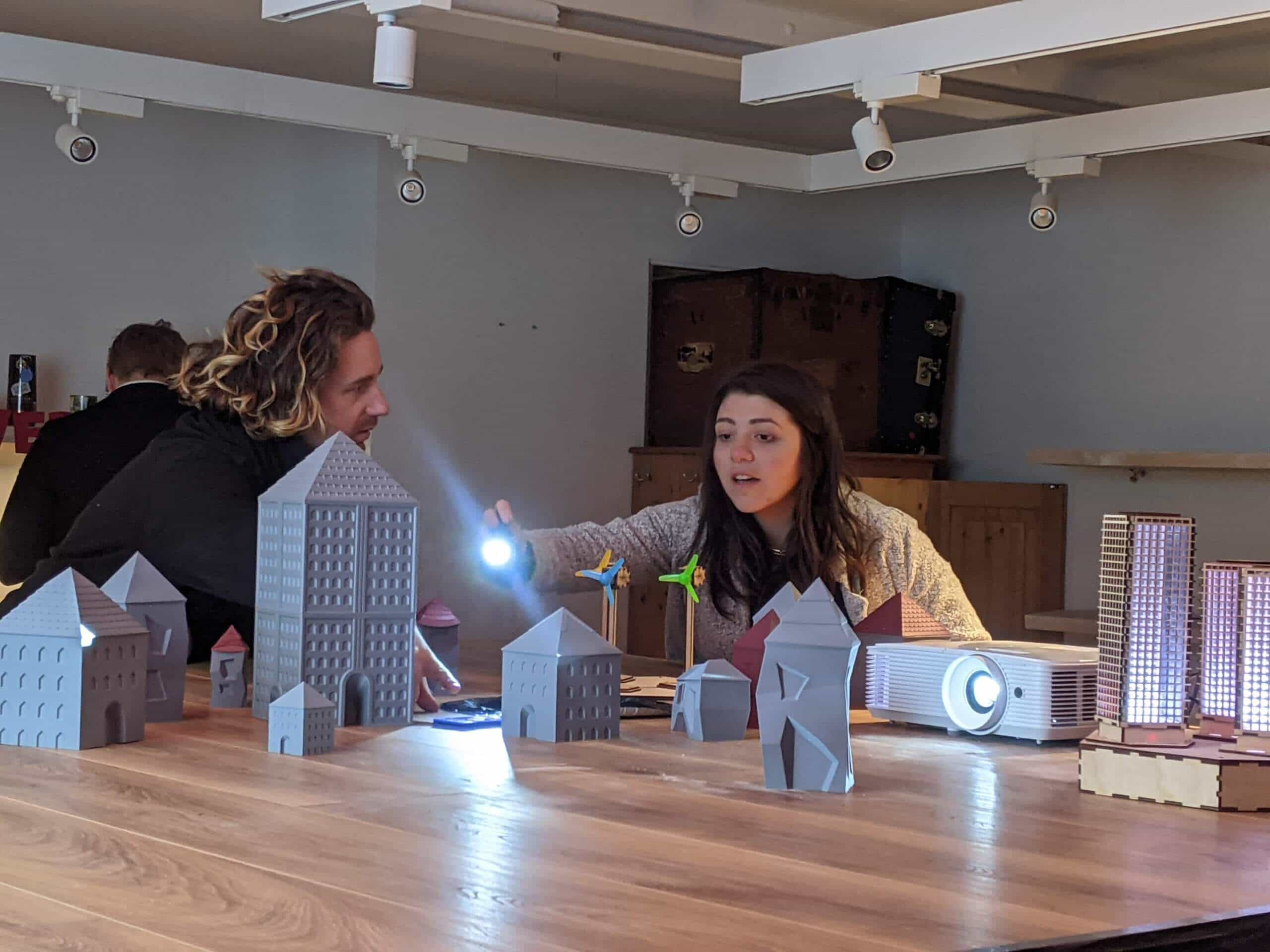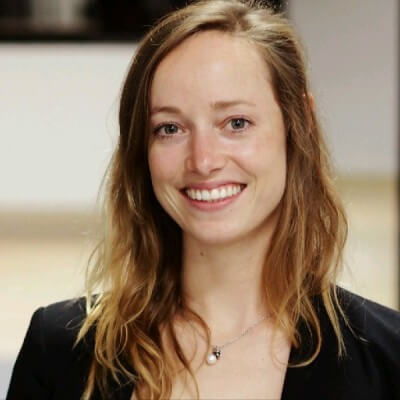The challenge.
Saskey and the Immergency concept was founded by Camille Gillet in February 2020 as an online games-room, with the first proof of concept physically launching in early 2022 in London.
Camille has a passion for sustainability, and trained as an engineer specialising in green technologies. After spending some years working at Jaguar Land Rover on systems to reduce emissions, she says that “I reaslised that no matter how green you make a car, the automotive industry is still selling something that sits out side a house doing nothing 90% of the time. What I decided I should be doing was finding a way to make educating people about the climate emergency sexy and fun to help get the message across.”
After starting to work with Innovate UK EDGE in 2022, she realised she needed an IP audit to:
- Strengthen the company’s case for investment, as it is currently fundraising
- Help the company to understand the potential risks of infringement when building its experiences and games
- Help the company to safeguard its own IP when building partnerships. The company is currently in discussions with numerous third parties
- Investigate ways that its IP and the Immergency concept could be grown in the future including the development of tailored experiences for clients, or franchising the model so that it can be replicated in different geographic areas
The best thing about working with Inngot was how in-depth the advice was. It was great to have a detailed focussed interview where I could ask questions and get answers straight away from experts in the fieldCamille Gillet - Founder, Saskey Ltd and Immergency Tweet
The solution.

Innovate UK EDGE recommended a number of companies which could conduct an audit and Camille approached two of these – Inngot was “the quickest to reply with a concrete action plan”, says Camille. She was also impressed with the company’s online platform and tools for SMEs to identify, manage and value their IP, and its range of bespoke services.
Camille asked Inngot to conduct an IP audit, funded under the UK IPO-run IP Audit Plus scheme (which provides a £3,000 grant to cover IP advice) to identify the current IP that Saskey owns and what other IP from third parties it may be using. The audit also covered processes and procedures to protect Saskey’s existing IP and any new IP that might be generated as the company scales.
Inngot’s experts began by establishing that the IP related to Immergency was currently owned either by Saskey Ltd or by Camille Gillet as an individual. Inngot suggested she should explore creating a holding company to own all the relevant IP, then licence it to Saskey and to licensees/franchisees. While there are costs involved, a holding company would protect the IP if Saskey Ltd got into financial difficulties.
The Immergency business model is focused on creating and delivering unique and engaging content via an escape room. The core of the company’s IP rests in software code, processes (games and rules), artistical works, content, videos, and other informational material, and in the know-how involved in creating and running the escape room. Copyright assets protect creative works and are therefore likely to be the most valuable intangible assets that the company currently owns or controls.
However, copyright only protects the implementation or expression of an idea, not the idea itself (so copyright can’t stop other people launching environmentally themed escape rooms); and copyright rests with the original creator, unless there is a legal agreement to assign it elsewhere. Such agreements should be put in place for contracts with any third party such as graphic designers, musicians, etc, and should also be reflected in employment contracts with staff.
Inngot also recommended registering trade marks, both those already in use and any which were created in the future, and also registering domain names.
Implementing good IP habits, such as securing and documenting as much IP as possible, as well as other know-how would be necessary to support a move to a franchise model, as would full exploration of the legal and other technical elements involved in franchising.
Finally, as Saskey has developed software code which might be patentable at some future date, it would be a good idea to consult with a patent attorney to discuss this issue.
The result.
- Camille has secured licensing agreements with third parties whose content she was using
- She has explored the idea of a holding company for her IP assets and decided it is not a priority for now
- She is creating a comprehensive list of her IP assets and of any relevant contracts and NDAs




